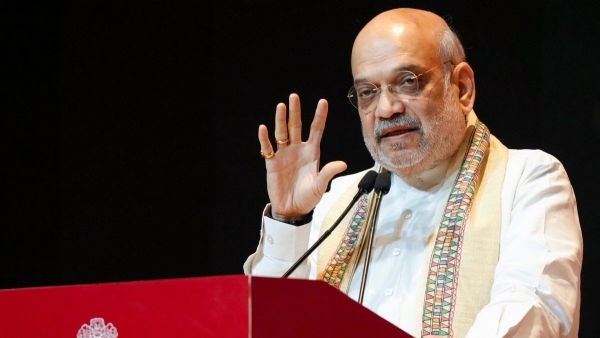
Delhi, 9 July (H.S.): Union Home Minister and Minister of Cooperation Amit Shah conducted a 'Sahkar Samvad' in Ahmedabad with women from the cooperative sectors of Gujarat, Madhya Pradesh, and Rajasthan, marking initiatives for the International Year of Cooperatives 2025. He showcased the establishment of Tribhuvan Sahkari University in Anand, named after Tribhuvandas Patel, a pivotal figure in the cooperative movement. Shah emphasized Patel’s legacy in empowering 36 lakh women in Gujarat, enabling them to conduct business valued at Rs 80 thousand crores. He acknowledged the controversy surrounding the naming of the university but asserted the importance of recognizing Patel's contributions.
Shah announced significant changes in the dairy sector, highlighting future cooperative efforts focused on cow dung management and enhancing animal health to boost dairy income. Experiments conducted nationwide are being compiled for the benefit of cooperative institutions, aiming to utilize cow dung for organic manure and gas production. He projected that a large majority of families engaged in milk production would eventually join cooperatives, with plans for animal vaccination and dung management to be implemented within six months.
He encouraged recognition of Patel by urging dairy cooperatives to display his portrait, allowing the public to appreciate his role in enhancing the lives of women in the cooperative sector. The expansion of cooperative activities began with the National Dairy Development Board and currently spans 19 states.
Shah discussed the integration of Primary Agricultural Cooperative Societies (PACS) into various initiatives like CSC, Micro ATMs, and banks, alongside training inspectors from District Cooperative Banks to educate PACS members on new bylaws. He stressed the importance of generating revenue from PACS and raising awareness about Jan Aushadhi Kendra to ensure communities benefit from affordable medicines.
He advised farmers cultivating maize and pulses to register on the NCCF app to access the Minimum Support Price (MSP), stressing their ability to sell at market rates if favorable. Shah also expressed his intention to retire devotedly to Vedic studies and natural farming, promoting its benefits for health and food production. His personal experience reflected a significant yield increase through natural farming practices, which eschew chemical fertilizers.
He announced the formation of a national cooperative entity for purchasing grains produced through natural farming and a society for exporting farmers' crops, ensuring direct profit deposits into farmers' accounts. Shah, proud of his role as Minister of Cooperation over the Home Ministry, vowed to hold ten more Chaupals across three states to gather suggestions for cooperative development.
Lastly, he revealed collaborative plans between Rajasthan and Gujarat to utilize the medicinal benefits of camel milk, aiming to increase prices for camel rearers, consequently aiding in breed conservation and benefiting the community.
---------------
Hindusthan Samachar / Jun Sarkar








